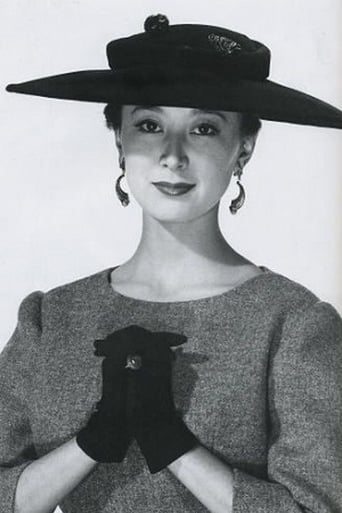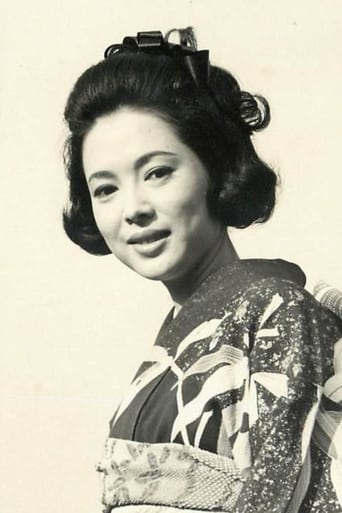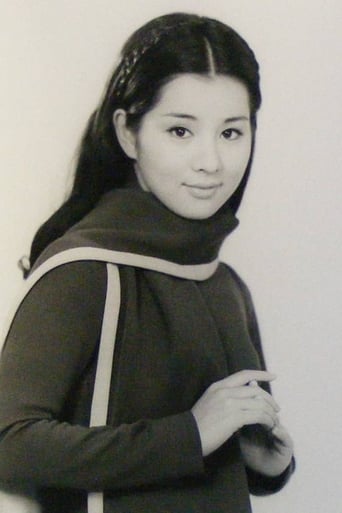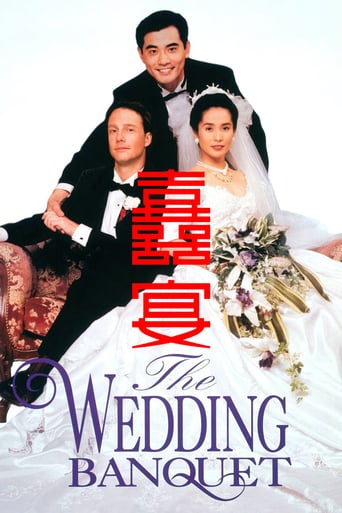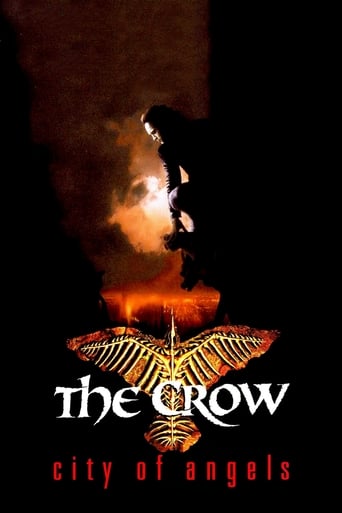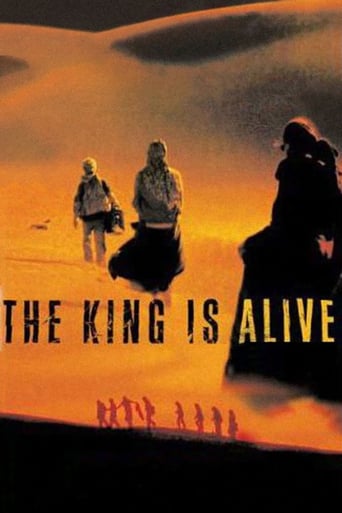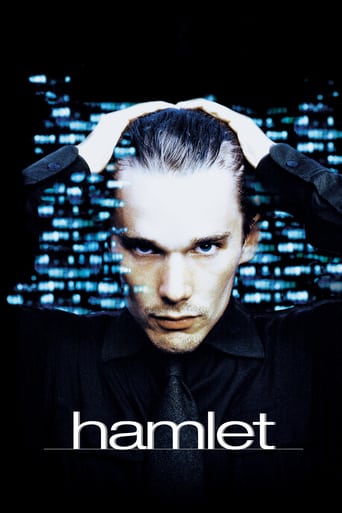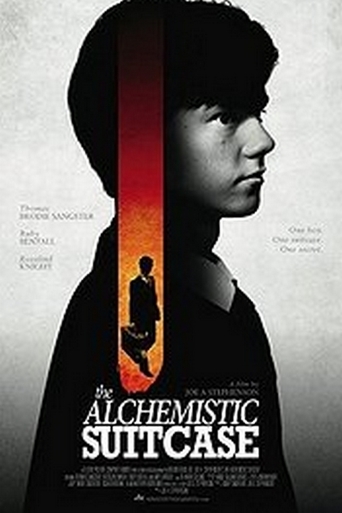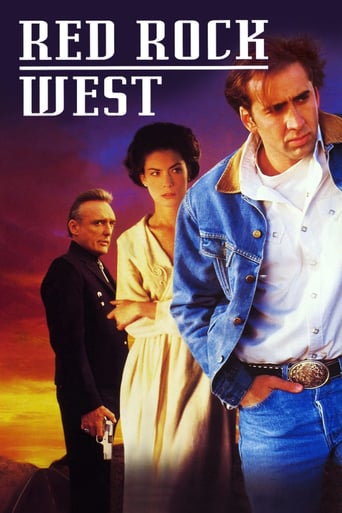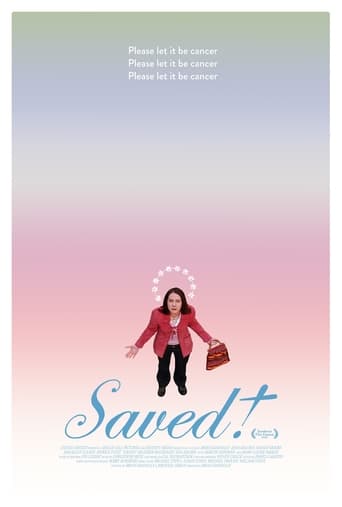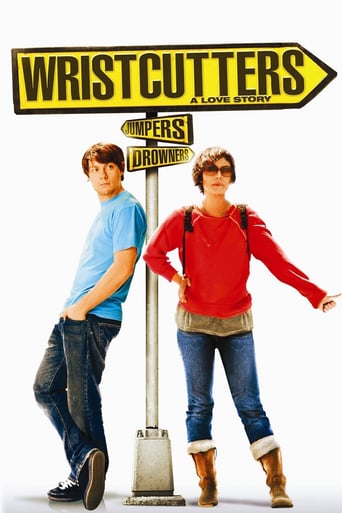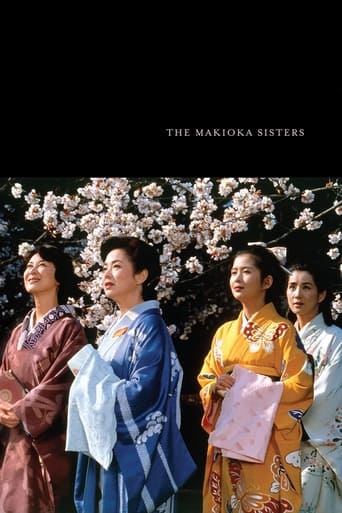
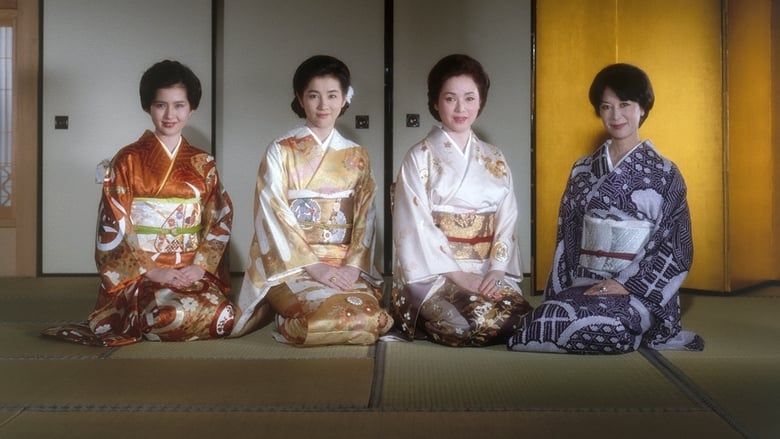
The Makioka Sisters (1983)
This sensuously beautiful film chronicles the activities of four sisters who gather in Kyoto every year to view the cherry blossoms. It paints a vivid portrait of the pre-war lifestyle of the wealthy Makioka family from Osaka, and draws a parallel between their activities and the seasonal variations in Japan.
Watch Trailer
Cast


Similar titles
Reviews
Sorry, this movie sucks
Save your money for something good and enjoyable
It was OK. I don't see why everyone loves it so much. It wasn't very smart or deep or well-directed.
It’s not bad or unwatchable but despite the amplitude of the spectacle, the end result is underwhelming.
I will first declare myself a fan of the book. As an adaptation this film is something of a hack job, and taken on its own merits borders on melodrama. The novel has been described as photo-realist and so the affected acting and melodramatic additions of the script are particularly jarring. Further, the sneering, satirical tone that hangs above many scenes implies actual disrespect of the source material. There is almost complete disregard for the characters of the novel, apart from their most basic profiles. The women are rendered feminine stereotypes via almost constant tears (totally absent from the novel), and the men tend to just shout and lust. For some reason the characters are always at each others throats. The portrayal of Yukiko is particularly shallow, and the most bizarre addition of the script is a salacious and thankfully slightly executed romance subplot between Yukiko and Teinnosuke, which seems to serve only to give male audience a sexual object. On the positive side all the technical aspects blah blah
Kon Ichikawa's "The Makioka Sisters" (aka "A Fine Snowfall") centres on the lives of four upper middle class Japanese sisters during the lead up to the Pacific War. The sisters belong to the Makioka family, a once powerful house which is now witnessing its declining years.The film opens with various misty landscape shots, before settling upon close ups of flower blossoms and petals. Throughout the film, like Ozu, Ichikawa uses ripening fruit and flower buds to suggest impermanence, transience and the passage of time. As Japan awaits change (and bloodshed), the sisters mourn the loss of their parents, fret over their family's finances and battle over tradition. One sister must be wedded to a man before she reaches a certain age, but her moxy and fiery independence (shades of Jane Austen) are at odds with both her biological clock and Japan's customs. Another sister wants to use the family's money to start a doll-making business, but the venture soon gives way to conventional, Western style sewing. All the while, time spirals away, inexorably towards...Much of the film focuses on rituals and customs, most of which are drawn out to the point of parody, or shown to be archaic, laborious and ridiculously inflexible. Holding on to these customs, the eldest sisters believe, will preserve their house's greatness. But these customs, the film shows, are already dead, entombed buds desperately awaiting the new blooms promised by the two youngest, somewhat dissident sisters.The film is stately, melodramatic, lush and colourful, but at times conjures up the spooky lavishness of Kobayashi's "Kwaidan". Ichikawa films the sisters in such a way that they are at times made grotesque and ghostly by ritual. Like John Huston, Ichikawa's filmography is comprised largely of adaptations of highly-regarded literary works. "The Makioka Sisters" was based on a novel by by Junichirô Tanizaki, a major Japanese novelist.8/10 - Worth one viewing.
The Makioka Sisters shows Ichikawa going back to one of the greatest 20th Century Japanese writers, Junichiro Tanizaki. Ichikawa had already directed, in the 1950s, a stunning adaptation of the Tanizaki novel The Key. The Key is an elliptical comedy about erotic fixation, with a lush visual style of saturated colors. The Makioka Sisters is a more subtle and delicate film, attuned as the novel was to the undercurrents running through the highly structured lives of the main characters. In some ways, the novel was Tanizaki's attempt to write a modern version of Murasaki Shikibu's Tale of Genji, and Ichikawa seems to have understood this in his adaptation, which brings a great deal of low-key humor and psychological insight to the proceedings, all very much in the Genji style. Essential viewing.
I give this film 10 out of 10 as even after seeing it more than 10 times it still moves me deeply. I was 15 years old when I first saw this movie in the theater in Seattle. I went back to see it again a couple of weeks later. The first 13 minutes during the credits is my favorite scene, filmed in Kyoto in Springtime. Read the book for more background. The Kimono worn by the female actresses are amazing. The late Juzo Itami plays the father. All the dialog is spoken in "Osaka-ben" or Osaka dialect, which has a softer sound than Tokyo dialect. You can also hear some Kyoto-ben too ("gomen-yasu" said by a servant upon entering in the first scene before entering the room). This film brings me to tears it is so beautiful. At the end of the first scene, when the camera pans out to the cherry blossoms outside and the music starts...it is cinematic heaven! I am waiting for this film to come out on DVD.


